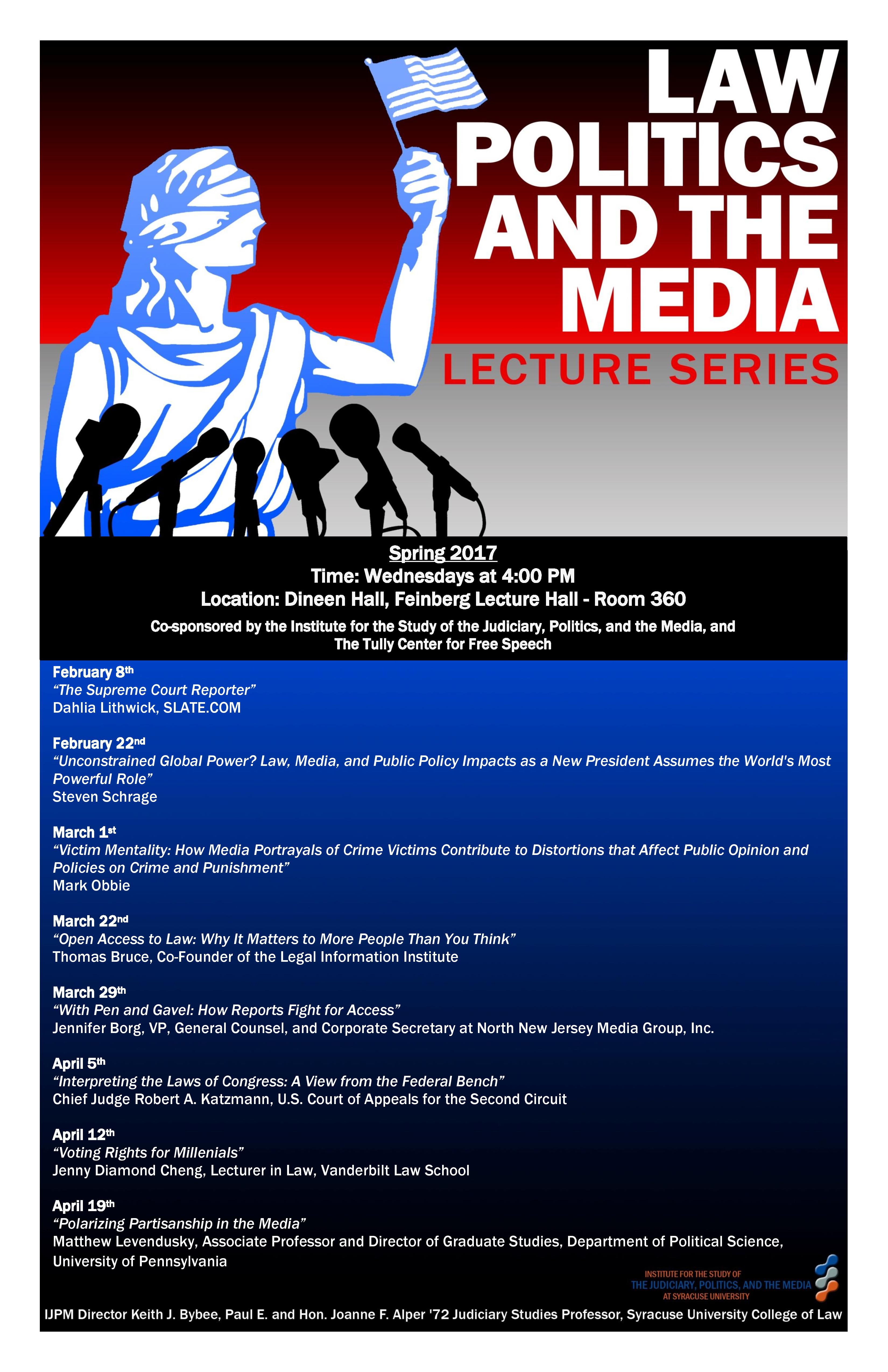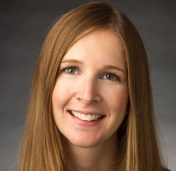The Spring 2017 Course Syllabus is now available HERE.


Nina Brown is an assistant professor at the Newhouse School. Brown teaches courses in communications and media law to Newhouse undergraduate and graduate students, as well as an introductory course about mass media and their functions. Brown’s scholarly interests focus on online speech, particularly on free speech concerns in a digital era and publisher immunity under Section 230 of the Communications Decency Act.
Brown began her career as a copywriter at a small advertising agency, and eventually held roles as the director of communications for a start-up technology company and the Associate Vice President of Brand Development at a Fortune 500 company. Brown then attended Cornell Law School. After several years practicing law, Brown joined the Newhouse faculty. She is a graduate of the Newhouse School.
We are very excited to have Professor Brown join us, and look forward to a wonderful ongoing relationship.
Is civility dead? Americans ask this question every election season, but their concern is hardly limited to political campaigns. Doubts about civility regularly arise in just about every aspect of American public life. Rudeness runs rampant. Our news media is saturated with aggressive bluster and vitriol. Our digital platforms teem with expressions of disrespect and trolls. Reflecting these conditions, surveys show that a significant majority of Americans believe we are living in an age of unusual anger and discord. Everywhere we look, there seems to be conflict and hostility, with shared respect and consideration nowhere to be found. In a country that encourages thick skins and speaking one’s mind, is civility even possible, let alone desirable?
In How Civility Works, Keith J. Bybee explores the “crisis” in civility, looking closely at how civility intertwines with our long history of boorish behavior and the ongoing quest for pleasant company. Bybee argues that the very features that make civility ineffective and undesirable also point to civility’s power and appeal. Can we all get along? If we live by the contradictions on which civility depends, then yes, we can, and yes, we should.
For more information, including excerpts and reviews, go here.
IJPM Director Keith J. Bybee has been selected as Syracuse University’s ACC Distinguished Lecturer for the 2016-17 academic year. More details here.
IJPM Director Keith Bybee posted a piece on Donald Trump and good manners to the Stanford University Press blog in advance of the publication of Bybee’s new book, How Civility Matters.
During the Fall 2016 semester, IJPM is once again offering an interdisciplinary course for undergraduates. For details, visit the Elements of Law course page.
Law, Politics, and the Media Lecture Series
Time: Wednesday, April 13th at 4:00 PM
Location: Dineen Hall, Feinberg Lecture Hall – Room 360
Law & Pop Culture
Speaker: Robert Thompson
Dubbed the “pop culture ambassador” by the Associated Press, Robert Thompson has contributed to hundreds of radio and TV programs and publications.
He is the founding director of the Bleier Center for Television and Popular Culture and a Trustee Professor of Television and Popular Culture at the S.I. Newhouse School of Public Communications.
Co-sponsored by The Institute for the Study of the Judiciary, Politics, and the Media, and The Tully Center for Free Speech
IJPM Director Keith Bybee edits the book series Stanford Studies in Law and Politics. The latest book in the series has just been published.
Law, Politics, and the Media Lecture Series
Time: Wednesday, April 6th at 4:00 PM
Location: Dineen Hall, Feinberg Lecture Hall – Room 360
At the Intersection of Journalism and Law: How a Reporter Covers Judges, Prosecutors, Defense Attorneys, and Civil Litigators
Speaker: Ken Armstrong
Armstrong is a 2012 Pulitzer Prize-winner in investigative reporting. He is currently a staff reporter for The Marshall Project, a nonprofit, nonpartisan news organization covering America’s criminal justice system.
Co-sponsored by The Institute for the Study of the Judiciary, Politics, and the
Media, The Tully Center for Free Speech, and The Kissel Fund for Civil